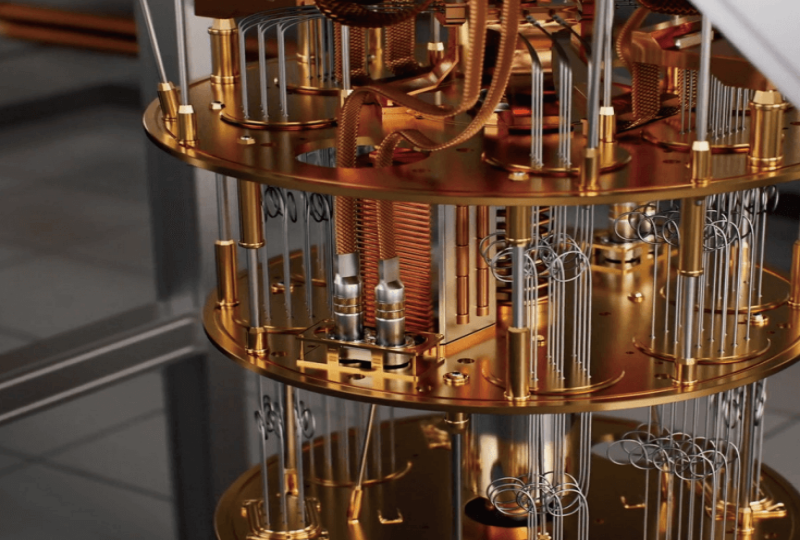Exploring Josephson Junctions in Superconducting Qubits
2025.03.13 · Blog
Quantum computing is revolutionizing the way we think about computation, and one of its most promising advancements lies in superconducting qubits. At the heart of many modern quantum computers, particularly those built with superconducting circuits, is the Josephson junction.
In this article, we will explore the fundamental role Josephson junctions play in the operation of superconducting qubits, and why they are essential to the future of quantum computing.
What is a Josephson Junction?
A Josephson junction is a quantum device consisting of two superconductors separated by a thin insulating barrier. This barrier allows for the phenomenon known as quantum tunneling, where particles (such as Cooper pairs of electrons) can pass through the insulating barrier without any classical current flow. This tunneling behavior is fundamental to the operation of superconducting quantum bits (qubits).
The Josephson junction has a unique ability to maintain a superconducting current even in the presence of a voltage, creating the necessary conditions for quantum interference. The junction's behavior can be controlled and measured, making it an essential component of many types of quantum computing architectures.
Josephson Junction in Superconducting Qubits
In superconducting quantum computing, qubits are typically formed by circuits that use Josephson junctions.
These junctions are integral to the behavior of the qubit, enabling it to exist in a superposition of states, which is a hallmark of quantum computing. A superconducting qubit generally consists of a superconducting loop with one or more Josephson junctions embedded within it.
The key property of Josephson junctions in qubit circuits is their ability to exhibit two states: zero voltage (a superconducting state) and non-zero voltage (a resistive state), depending on the current passing through the junction. This forms the quantum bit that can store information in two distinct states.
These two states, combined with the ability to manipulate and measure the quantum state, are what allow superconducting qubits to function and perform quantum operations. Josephson junctions help create the quantum coherence required to maintain these states long enough for computation.
The Role of Josephson Junctions in Quantum Gates and Quantum Computation
One of the most exciting aspects of Josephson junctions in superconducting qubits is their role in quantum gates, the basic operations that drive quantum computations. By controlling the voltage and current in the junctions, quantum gates can be implemented on the qubits, enabling quantum algorithms to be executed.
These gates utilize the quantum interference properties of Josephson junctions to manipulate qubit states. For example, Hadamard gates, which place qubits into superposition, and CNOT gates, which entangle qubits, rely on the precision and stability provided by Josephson junctions to perform operations that are impossible with classical computing systems.
Challenges in Josephson Junctions for Quantum Computing
Despite their powerful capabilities, there are challenges associated with using Josephson junctions in quantum computing.
One major challenge is quantum decoherence, where the delicate quantum states can be disrupted by noise or fluctuations in the system. To combat this, researchers are focusing on improving the stability and coherence time of Josephson junctions to increase their effectiveness in quantum computers.
Moreover, scalability is another concern. Quantum computers need many qubits to solve complex problems, and as more Josephson junctions are added, maintaining their precision and managing the interaction between qubits becomes increasingly difficult. Scientists are exploring new materials and designs to enhance the scalability and efficiency of superconducting quantum systems.
Conclusion
The Josephson junction is a critical building block of modern superconducting quantum computers. By enabling qubits to maintain stable quantum states and perform quantum gates, Josephson junctions play a pivotal role in the development of quantum computing. While challenges remain, the ongoing research and advancements in Josephson junction technology promise to bring us closer to realizing the full potential of quantum computers.
As quantum computing continues to evolve, the Josephson junction will remain at the forefront of innovations that may one day solve some of the most complex problems in fields such as cryptography, drug discovery, and artificial intelligence.
Featured Content
Popular Reads




.png)

